Galileo’s send off > Umoja’s touch down
The Galileo Decommissioning Project (‘GDP’) is one of the key initiatives being implemented by the Department of Field Support this year. GDP was officially launched in December 2016as part of Phase 1 of Umoja Extension 2 (UE2), with the aim to assist the UN Peacekeeping and Special Political Missions to transit from their current inventory and fleet management system (Galileo), to the UN’s enterprise resource management system (Umoja). Once the project is deployed at the beginning of September 2017, the Missions will use Umoja to manage all logistic and service delivery operations.
GDP is the first phase of the supply chain transformation program. “It is very important to get the foundation of supply chain right before we move to even more complex tasks, improving the UN’s ability to do demand and supply planning in very challenging conditions of peacekeeping operations” - affirmed Reza Khan, Umoja Programme Coordinator. “For more than ten years, we have used Galileo to manage UN inventory. The system served us well, but with the Organization committed to Umoja, it makes perfect operational sense to integrate our property management, logistic, and supply chain functions into the system that every entity of the Secretariat is using already.”
As expected in large-scale business transformation initiatives, GDP has encountered complex delivery challenges. Transitioning to Umoja requires system changes, optimization of business processes, as well as changes to the way staff performs their tasks, which impacts behavioral changes throughout the entire Organization. Keeping these challenges in mind, in addition to key project deployment activities such as system testing, data migration and training, greater attention has been given to change management. “We can build a system that has the most modern and optimized process, but if staff do not take a full advantage of its features and do not adapt to the new ways of doing their work, the Organization will not reap the full benefits of the system. It is crucial to get both technical and people elements of the project right”- shares Himanshu Vyas, GDP’s Project Manager.
Change Management
Typically during the transition period from one system to another, anxiety abounds due to perceived uncertainty. That is why it is important to establish a dialogue with staff and prepare them for the upcoming changes. To prepare UN staff transition to Umoja, the GDP Solution Design and Change Management teams conducted a series of workshops in the missions.
Over the course of five weeks in May and June 2017, the team visited 20 peacekeeping and special political missions, as well as 3 offices away from headquarters. According to Fuad Mohammednur, workshop participant from MONUSCO - “the workshop provided an overview of the main changes in business processes and an opportunity to discuss the impact of Umoja on the everyday activities of missions, which is key to prepare for post-Galileo life.” During the workshop, participants were presented with an overview of Logistics Execution and Services Delivery processes in Umoja, followed by focus group discussions. The sessions generated a list of change impacts and a plan on how to address them.
Another crucial activity to prepare future users is continuous training. Present training is focused on enhanced features of Umoja Foundation, as well as the new GDP processes. Given the vast amount of topics to be covered, GDP training is divided into two cycles, each covering a particular set of topics. Staff is taught about specific sets of transactions, and how all business processes fit together in one solution. So far, over a thousand UN staff has been trained and another thousand will be trained before GDP deployment in September. Training activities will continue beyond go-live to ensure ongoing support.
With few months to go, there is still a lot of work ahead. Among key activities are completion of system testing, staff training, gradual turn off of Galileo (the cutover process), and Umoja ramp up activities. GDP is also an opportunity to optimize and map mission warehouses. For instance, the cleansing and consolidation of data has already moved from over 600 warehouses in Galileo to 91 in Umoja. This will help the missions to be more organized and effective when it comes to warehouses management.
In many ways, September go-live marks the start of new ways to manage logistics, property management and service delivery functions. To support missions during this transition, the GDP team is planning to keep stabilization teams running in 4 strategic deployment hubs to help address any technical or training challenges in missions. The key to success lies in cooperation and coordination, and the GDP team is keen on making this project successful for the entire Organization.
For more detailed GDP deployment information, visit the Field Support webpage in the Umoja website.
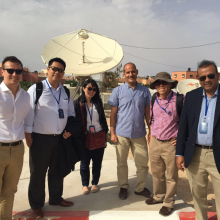 GDP Team: Dmitri Ponomarev, Amarin Ilah,
GDP Team: Dmitri Ponomarev, Amarin Ilah,
Joy Foo, Kin-Hui Chang, and Reza Khan with
Omar Omar, MINURSO in Laayoune, Western Sahara.
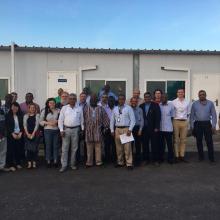
Workshop participants in Goma, MONUSCO.
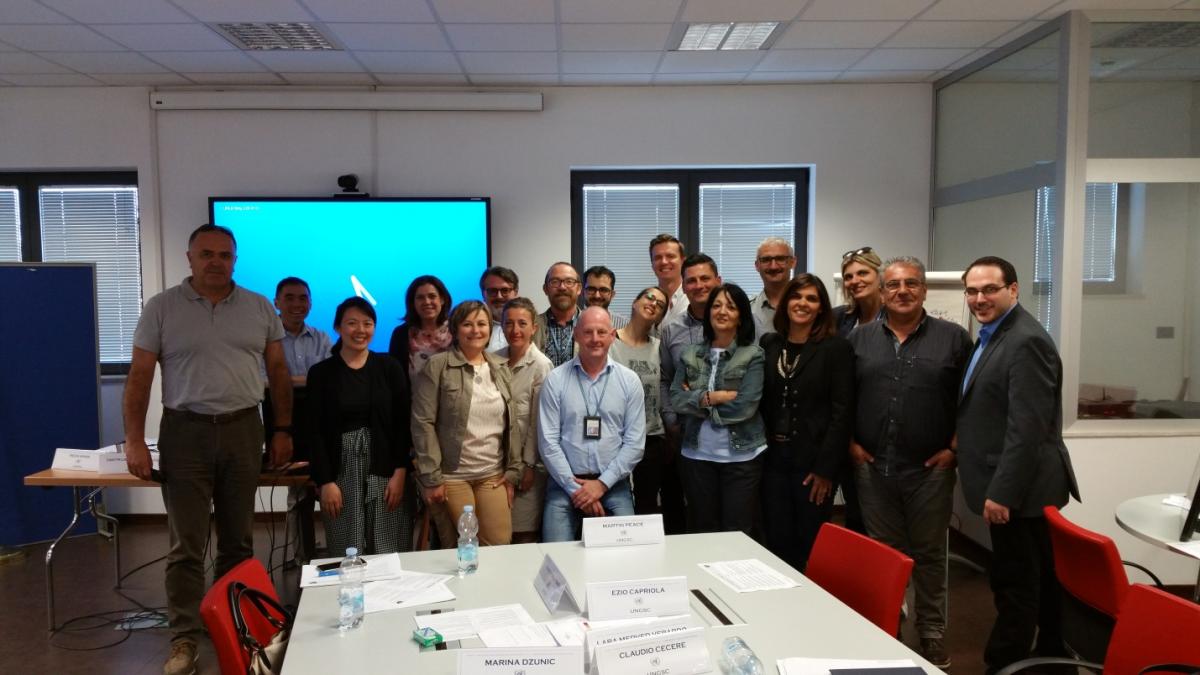 GDP and UNGSC teams in Brindisi
GDP and UNGSC teams in Brindisi
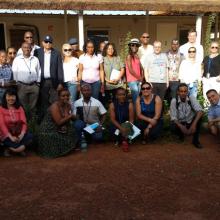 Workshop participants in Bamako, MINUSMA
Workshop participants in Bamako, MINUSMA
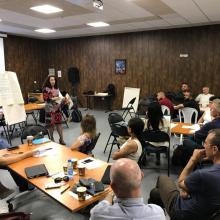 Radmila Dimitrijevic Rajic from UNIFIL
Radmila Dimitrijevic Rajic from UNIFIL
discussing the implications of changes
in the write-off process
